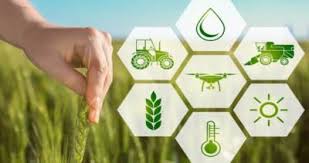Agriculture is the backbone of many economies, providing employment, food, and income for millions of people worldwide. In Nigeria, agriculture is a vital sector, accounting for a significant portion of the country’s Gross Domestic Product (GDP). Despite its importance, many farmers face challenges in accessing markets, finance, and technology, limiting their ability to maximise their potential.
However, there are numerous opportunities available to farmers, ranging from training programmes and funding initiatives to market access and technology adoption. In this article, we will explore some of the opportunities available to farmers, including real-life examples that farmers can register, or apply for. They include:
1. Training and capacity building: Many organisations offer training programmes for farmers, focusing on topics such as sustainable agriculture practices, business management, and marketing.
2. Funding and grants: Governments, non-governmental organisations, and private companies provide funding and grants to support farmers in improving their productivity, adopting new technologies, and expanding their businesses.
3. Market access: Initiatives such as e-markets, agricultural trade fairs, and export promotion programmes help farmers connect with buyers, both locally and internationally.
4. Technology adoption: Farmers can access various technologies, including precision agriculture tools, irrigation systems, and mobile apps, to improve their efficiency and productivity.
The following opportunities are open for farmers:
1.TAFSA programme: The Intra-Africa Mobility to Train Agribusiness and Food System Scientists for African Agriculture (TAFSA) programme is currently accepting applications for its sixth cohort. The programme, supported by the European Union, aims to develop the skills and research excellence of Agribusiness and Food System Scientists in Africa. Application deadline is January 15, 2025.
2. NIRSAL Microfinance Bank: NIRSAL Microfinance Bank offers financing options to farmers, including loans and guarantees. Farmers can apply for financing to support their agricultural projects, improve their productivity, and expand their businesses. To check out this opportunity, click here to navigate to the website https://nmfb.com.ng/

3. AFEX commodities exchange: AFEX is a commodities exchange that provides farmers with access to markets, finance, and technology. Farmers can register with AFEX to sell their produce, access loans, and receive training on sustainable agriculture practices. Benefits to farmers include:
i. Improved market access: Africa Exchange (AFEX) connects farmers directly to buyers, eliminating intermediaries and increasing profit margins.
ii. Better price discovery: AFEX’s online platform provides real-time market prices, enabling farmers to make informed decisions about their produce.
iii. Reduced post-harvest losses: AFEX’s warehouse management system helps farmers store their produce safely, reducing losses and improving quality.
iv. Access to finance: AFEX offers financing options to farmers, enabling them to purchase inputs, expand their operations, and improve their productivity.
v. Training and capacity building: AFEX provides training and capacity building programmes for farmers, focusing on topics such as sustainable agriculture practices, business management, and marketing.
Getting started with AFEX commodities exchange
To get started, farmers can follow these steps:
i. Registration: Farmers can register on the AFEX website or mobile app, providing basic information such as their name, location, and type of produce.
ii. Verification: AFEX verifies the farmer’s information and conducts a risk assessment to determine their creditworthiness.
iii. Warehouse registration: Farmers can register their warehouses with AFEX, enabling them to store their produce safely and reduce post-harvest losses.
iv. Produce listing: Farmers can list their produce on the AFEX platform, specifying the quantity, quality, and price.
v. Buyer connection: AFEX connects farmers with buyers, facilitating transactions and ensuring timely payment.
vi. Financing options: Farmers can access financing options from AFEX, enabling them to purchase inputs, expand their operations, and improve their productivity.
Requirements for farmers
To participate in the AFEX commodities exchange, farmers are required to:
i. Be a registered farmer: Farmers must register with AFEX and provide basic information about themselves and their produce.
ii. Meet quality standards: Farmers must ensure that their produce meet AFEX’s quality standards, which are aligned with international best practices.
iii. Have a warehouse: Farmers must have a registered warehouse with AFEX, enabling them to store their produce safely and reduce post-harvest losses.
iv. Be willing to adopt technology: Farmers must be willing to adopt technology, including mobile apps and online platforms, to participate in the AFEX commodities exchange.
Conclusion
Agriculture presents numerous opportunities for farmers to improve their livelihoods, increase their productivity, and contribute to the growth of their communities. By accessing training programmes, funding initiatives, market access, and technology adoption, farmers can unlock their full potential and achieve success. The opportunities highlighted in this article, including the TAFSA programme, AFEX Commodities Exchange, and NIRSAL Microfinance Bank, are just a few examples of the many opportunities available to farmers.
Contact information
For more information about AFEX, and how to get started, farmers can visit the website: https://africaexchange.com/



